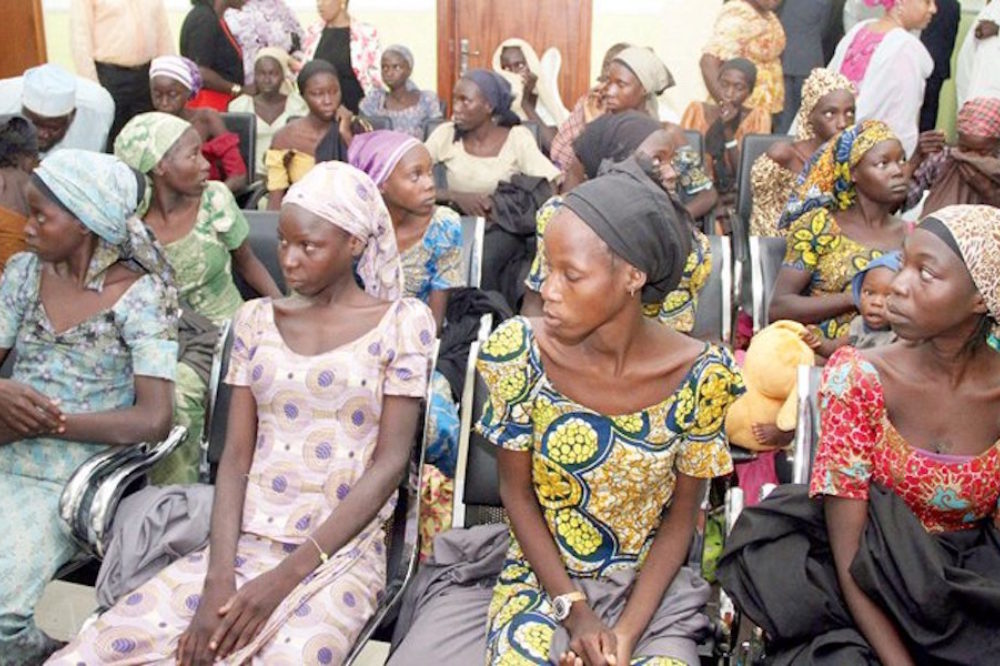In the annals of global consciousness, the abduction of 276 girls by Boko Haram in Chibok, Nigeria, on April 14, 2014, remains an indelible stain. This tragedy has spawned stories of resilience, recovery, and education, with the Chibok girls’ lives diverging into distinct narratives based on their chosen paths – those who pursued education in Nigeria and those who sought refuge and opportunities in America.
Soon after their kidnap on the night of April 14, about 57 girls got away from their abductors by jumping down from the truck that was conveying them. Later that year, four other got away unnoticed. In 2017, the Nigerian government entered into negotiation with the terrorist, leading to the release of 21 more girls in October. That same year, 82 more girls were let go after receiving a ransom.
Nigerian Journey: Struggles Amidst Promise
The trajectory of the Chibok girls who chose to continue their education in Nigeria unfolds against a backdrop of profound challenges. Following their released in 2017, the survivors underwent an arduous process of rehabilitation and a pre-degree program before finally gaining admission to the American University of Nigeria (AUN). Despite the government’s promise of scholarships covering tuition, accommodation, and feeding, the journey has been far from smooth.
Educational Shortcomings:
One of the immediate challenges noted after their release was a significant gap in English communication skills. Despite being final-year secondary school students before their abduction, the girls struggled to articulate themselves in English. The reasons behind this deficiency ranged from poor-quality teaching to the girls preferring their local dialect, exacerbated by teachers’ irregular attendance.
This educational shortfall persisted, requiring the survivors to undergo an extensive pre-degree program to bridge the gap and prepare them for the academic rigor of higher education. However, even with years of preparation, the Chibok girls found themselves struggling to catch up with their peers at AUN, highlighting the persistent impact of their traumatic experiences on their educational journey.
Unfulfilled Promises and Financial Struggles:
While the Nigerian government pledged scholarships, the reality on the ground revealed shortcomings in implementation. The scholarship covered tuition, accommodation, and feeding, but essential needs such as books and student association levies were not included. The monthly allowance, though increased from ₦8,000 to ₦25,000, proved insufficient in the face of rising inflation.
Rebecca, a law student, expressed her financial struggles, revealing that she had to use her own money to purchase required textbooks. The discrepancy between promises and reality illuminated the gap in financial support, impacting the educational pursuits of the Chibok girls.
Lack of Resources:
Another significant hurdle was the lack of reliable personal computers. While the government provided AfriOne tablets during their stay in Abuja, technical issues and subsequent philanthropic donations of laptops presented new challenges. Many of these laptops developed faults or were too slow to meet academic demands, hindering the girls’ participation in online assignments and tests.
The choice of the university itself became a point of contention. Some survivors, like Esther and Blessing, desired to become nurses, a program not available at AUN. This led to their enrollment in the Natural Environmental Science department instead, raising questions about the consideration given to the girls’ aspirations and the government’s plans for their postgraduate education.
Segregation and Lack of Diversity:
The educational challenges extended beyond resources to social dynamics. The concentration of Chibok girls in the same school, exacerbated by their segregation within AUN, raised concerns among the survivors. They argued that spending too much time together hindered academic performance, as they often resorted to speaking their local dialects instead of improving their English proficiency.
Activist Dr. Allen Manasseh echoed these concerns, emphasizing the importance of diverse interactions for psychosocial support, a vital component of the survivors’ rehabilitation.
American Success Stories:
In stark contrast to their counterparts in Nigeria, Chibok girls who sought refuge in America embarked on a different educational journey. The environment offered a more sophisticated and organized setting, providing them with opportunities for faster progress and personal growth.
Observers noted a significant improvement in the English proficiency of Chibok girls who sought refuge in America. The exposure to a diverse, non-judgmental environment played a crucial role in enhancing their language skills, allowing them to excel academically.
Successful College Graduations:
As a result of the much improved sociological environment provided by the American society, a considerable number of Chibok girls who fled to America have not only graduated from college but have also settled down to new lives in the United States.
According to media reports, those who have completed their college education include Palmatah Mutah, Lydia Pogu and her cousin Joy Bishara among others. Notably, Pogu, one of the survivors who courageously jumped from the Boko Haram truck, in 2022, achieved a Master’s Degree in Human Services Administration from Southeastern University, USA, just one year after completing a Bachelor’s degree in Legal Studies from the same institution.
Bishara also obtained a bachelor’s degree in Sociology from Southeastern University. And a few months ago she joyfully took to her Instagram handle to announce her engagement to an American, symbolizing a triumphant transition into a new chapter of life.
Transformative Impact of Studying Abroad:
Pogu, in her graduation speech, shared her disbelief at holding a Master’s Degree, emphasizing how studying abroad had transformed her life. Her narrative revealed the resilience and strength that enabled her to overcome the threats issued by Boko Haram, demonstrating the life-changing impact of education in a more supportive and diverse environment.
In a video posted on her Facebook page, Pogu said, “After the warning from Boko Haram that they didn’t want any girl to go to school because, according to them, it was ‘haram.’ I began to live in fear. I thought all my dreams had changed, but God had a different plan for me.
“Boko Haram told us that school is a taboo for women and warned us that if we go back to school, they will come for us. Because of what happened and what Boko Haram told us, I got so scared to go back to school again. I told my parents that I would rather stay with them at home and suffer than go back to school again. I thought all my dreams had changed, but God had a different plan for me.”
Educational Challenges in Nigeria vs. Opportunities Abroad
The dichotomy in the educational journeys of Chibok girls in Nigeria and America underscores the importance of contextual factors in shaping survivors’ experiences. While those in Nigeria faced numerous obstacles, from linguistic challenges to insufficient resources and limited academic diversity, their counterparts in America thrived in an environment that fostered growth, language development, and successful academic outcomes.
The disparities underscore the importance of not only financial support but also the quality of the educational environment in facilitating survivors’ recovery and progress. The success stories of those who thrived abroad serve as a testament to the transformative power of education when coupled with a conducive and supportive setting.
Priorities and Concerns:
While the narratives of the Chibok girls diverge, their collective concerns pivot on two paramount issues – the return of peace to their communities and the rescue of their schoolmates still held captive. The survivors passionately plead for government intervention to alleviate the dire conditions of those still in captivity and express a profound worry about the government’s silence regarding ongoing rescue efforts.
Rebecca, likening the conditions of abduction to “the pit,” fervently urges the government to bring back her sisters and provide them with an opportunity to experience the beauty of the world outside their captivity. The overarching sentiment among the survivors is a plea for the government to prioritize the safety and well-being of their communities, emphasizing the need for collective action to restore peace.

